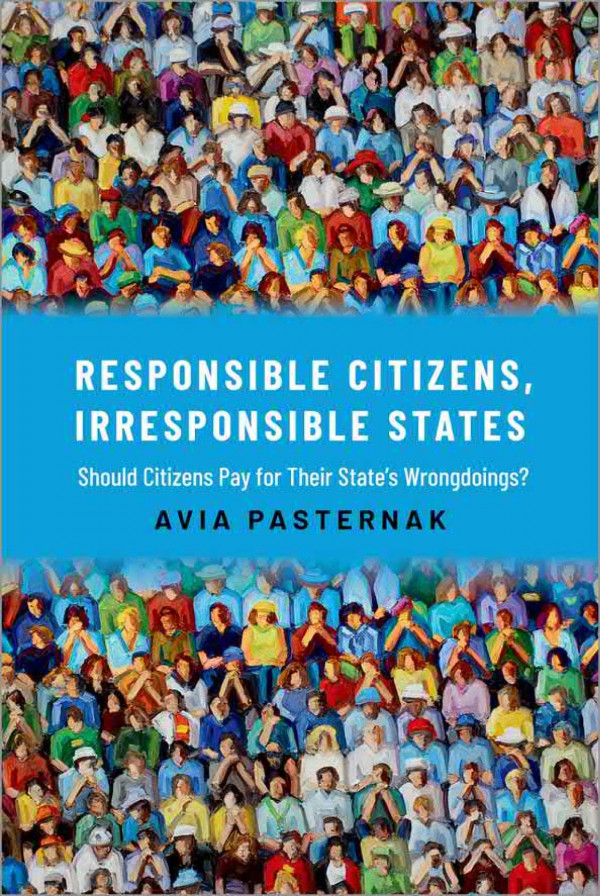Responsible Citizens, Irresponsible States : Should Citizens Pay for Their States’ Wrongdoings? Avia Pasternak 9780197541050 0197541054
$50.00 Original price was: $50.00.$25.00Current price is: $25.00.
Responsible Citizens, Irresponsible States : Should Citizens Pay for Their States’ Wrongdoings? Avia Pasternak – Ebook Instant Download/Delivery ISBN(s): 9780197541043,9780197541036,9780197541050,0197541046,0197541038,0197541054
Product details:
- ISBN 10: 0197541054
- ISBN 13: 9780197541050
- Author: Avia Pasternak
States are often held responsible for their wrongdoings. States pay compensation for their unjust wars, as did Iraq in the aftermath of its invasion of Kuwait. States pay reparations for their historical wrongdoings, as did Chile to the victims of the Pinochet Regime, or Germany to Israel and other countries because of the Holocaust. Some argue that they should pay punitive damages for their international crimes as well. But state responsibility has a troubling feature: states are corporate agents, comprising flesh and blood citizens. When they turn to the public purse to finance their corporate liabilities, it is their citizens who pay the price. Even citizens who protested against their state’s policies, did not know about them, or had no influence on policy makers end up sharing the burden. Why should these citizens pay for their state’s wrongdoings, if they don’t carry the blame? Responsible Citizens, Irresponsible States develops a fresh justification for citizens’ duties to share the burden of their state’s wrongdoings. This justification revolves around citizens’ participation in their state: drawing on recent debates in the philosophy of collective action, Avia Pasternak shows that citizens are acting together in their state and that their state policies are the product of this collective action. Given this participation, citizens ought to share the burden of remedying harmful wrongs their state policies bring about. However, she also argues that not all citizens in all states are participating in their state. In many authoritarian states, citizens’ participation in the state is highly restricted or coerced. Here, ordinary citizens do not share responsibility for their state policies and should not be forced to pay for them. These conclusions carry significant real-world implications for the way domestic international law holds various types of states, and their citizens, responsible for their wrongdoings. This work is essential for political theorists and philosophers grappling with citizen responsibility and duty.
Table contents:
Part 1. State Responsibility and Its Distributive Effect
1.1. States as Corporate Agents
1.2. The Moral Responsibilities of States
1.3. Proportional Distribution
1.4. Nonproportional Distribution
Part 2. Intentional Participation and Nonproportional Distribution
2.1. Participatory Intentions and Collective Action
2.2. The Normative Implications of Participation
2.3. Coercion and Acceptance
Part 3. Intentional Participation in the State
3.1. Participatory Intentions in the State
3.2. Voluntariness and Acceptance in the State
3.3. The Scope of Participation in the State
3.4. Nonproportional Distribution in the State
Part 4. Intentional Citizenship and Regime Types
4.1 Testing for Intentional Citizenship
4.2. Who Is Not an Intentional Citizen?
4.3. Intentional Participation in Authoritarian Regimes
Part 5. Distributing State Responsibility
5.1. Alternative Bases for Nonproportional Distribution
5.2. Distributing Responsibility in the State—A General Framework
Part 6. Distributing Responsibility—State Compensation and State Punishment
6.1. State Compensation Schemes
6.2. Punishing States
Part 7. Intentional Citizenship and Historical Wrongs
7.1. Intentional Participation in Wrongs of the Past
7.2. State Succession and the Transfer of Liability
7.3. Regime Change and the Transfer of Liability
7.4. Meeting Victims’ Demands
People also search:
how to make irresponsible person responsible
responsible citizenry
responsibility of citizens in the united states
responsible citizen example
state citizen responsibilities
responsible citizens irresponsible states
You may also like…
Business & Economics
Politics & Philosophy - Government & Politics
Uncategorized
Diaspora Entrepreneurs and Contested States 1st edition by Maria Koinova 0192588319 9780192588319
Politics & Philosophy - Government & Politics
Politics & Philosophy - Politics
Uncategorized
The Citizens’ Ledger: Digitizing Our Money, Democratizing Our Finance 1st Edition Robert C. Hockett
Uncategorized
Not In Their Name: Are Citizens Culpable For Their States’ Actions? Holly Lawford-Smith
Politics & Philosophy - Others
Literary Cosmopolitanism in the English Fin de Siecle: Citizens of Nowhere 1st Edition












